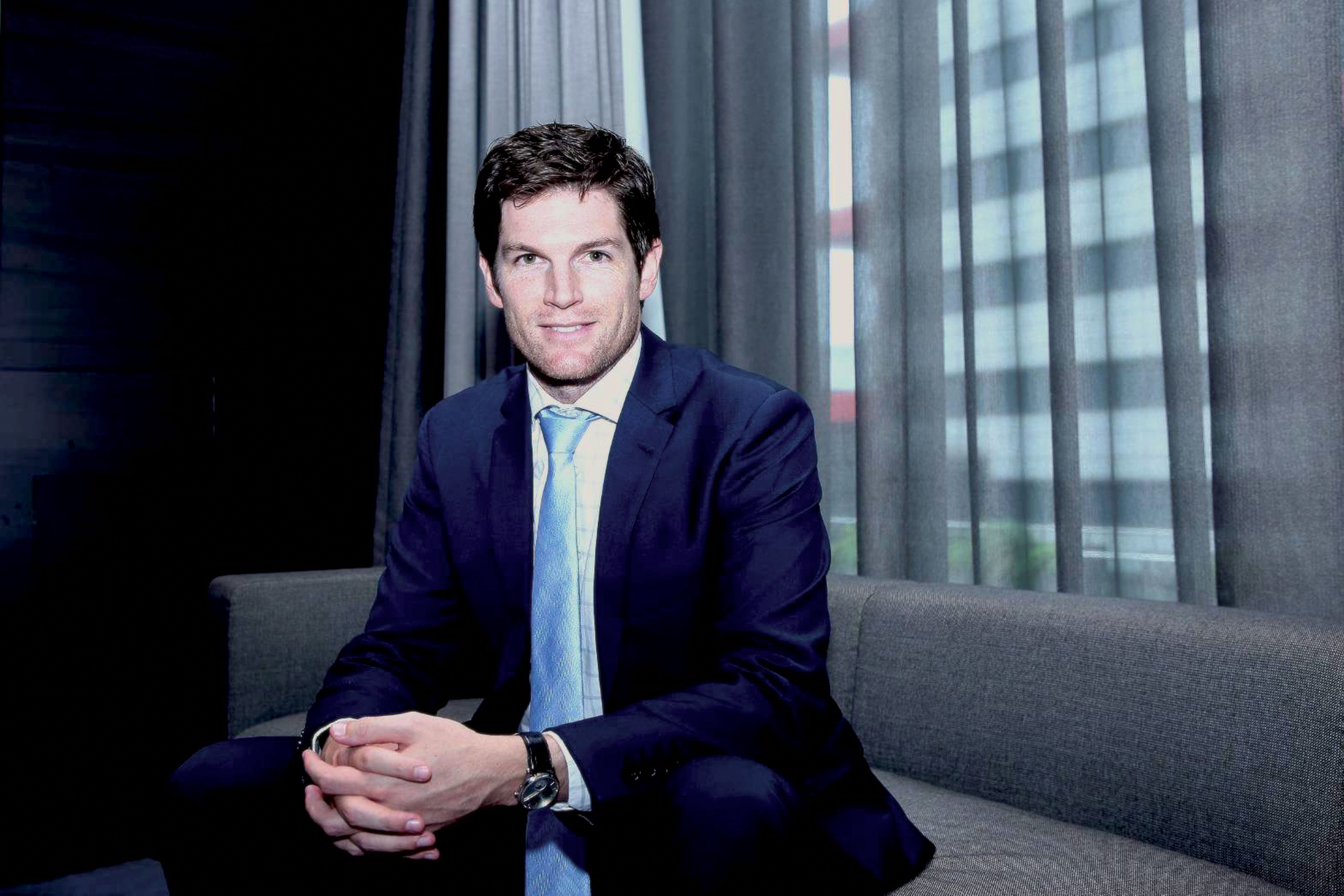Is the worst-case scenario already in the price?
The bond market has a reputation for seeing what is coming before other asset markets begin to adjust. While equity markets embarked upon a feverish rally in January and early February the fixed income markets were taking a far less rosy view on the potential economic impact of COVID19. The yield on 2-year US Treasury Bonds has collapsed to just 0.42% down 100 basis points in a month.
So, if the bond markets were ahead of the curve in predicting the current turmoil, what are they telling us about the outlook today. I reached out to Garreth Innes from Aberdeen Standard Investments and Frank Uhlenbruch from Janus Henderson to get their perspective on the signal coming from bond markets today.

Image: Frank Uhlenbruch, Janus Henderson
The best-case: short and sharp
Both investors say that the best-case scenario involves a short and sharp disruption where economic activity takes a hit to assist in containing the virus. Assuming some level of confidence on the ability to curb the spread of a virus then markets could look through the short-term disruption, according to Frank Uhlenbruch from Janus Henderson.
“The best-case scenario is that we avoid a recession or escape with a very mild one that is short-lived. Frontend-loaded fiscal easing of 1% of GDP will help in this regard, and credible news of an impending vaccine will help remind people that this will be a temporary slowdown and the economy will rebound strongly.”
Garreth Innes from Aberdeen Standard Investments has a similar view on the best-case scenario and says China could play a vital role in the recovery phase.
“This short, sharp contraction would be managed through a combination of monetary and fiscal policy to ensure liquidity and defer solvency concerns. China would turn to the traditional playbook of aggressive infrastructure development, utilising Australian commodities and delivering royalty windfalls to the states of Queensland and Western Australia.”
The worst-case: Not pretty
Unfortunately, the path forwards still looks unclear and markets are clearly trying to come to grips with a far more sombre assessment of the likely fallout. In addition to the health ramifications of COVID19 Gareth Innes says Australian jobs along with the housing and banking sectors are top of the list of concerns under a more bearish scenario.
“The worst-case outcome is a full-blown economic/liquidity crunch that sees unemployment rise, damaging the Australian housing & banking sectors (given how leveraged Aussies are to these asset classes and the requirement of ongoing offshore funding for the banks).”
Uhlenbruch agrees, saying that under a more bearish scenario, a recession would be deeper and longer-lived with a spike in unemployment.
“The virus will pass, and the economy will rebound, though from a lower starting point. In this scenario, further fiscal easing will be needed.”
Is the worst-case already in the price?

Image: Garreth Innes, Aberdeen Standard Investments
Given the unique set of events that are unfolding, it is difficult for market participants to grasp the scale of the flow-on impacts from the current disruption gripping the global economy.
Innes says that markets are still not reflecting the worst case, which is bad news for risk assets.
If liquidity issues within bond markets are not assuaged by recent central bank/government actions, then the equity market will need to deal with the fallout of a stark fall in share buybacks.
Companies themselves have been a material buyer of shares in recent years so unless there are institutional and retail buyers ready to pick up the slack, and you could see further weakness due to the absence of a large buyer.”
However, Innes says Aberdeen are not positioning for a worst-case outcome and highlights that the low income available in fixed income markets could force money back into riskier assets as soon as sentiment improves.
Central banks on the front foot
Emergency rate cuts have come through from central banks, but both investors argue that there is a limit to how much work can be done by monetary policy. Uhlenbruch says that fiscal policy can be far more targeted and is much better placed to help out until infections peak. Innes says that lowering interest rates can ‘shove’ investors in and out of positions but ultimately, the situation is more than just a financial markets issue.
“If anything, governments have been behind the curve in terms of protecting our borders and health care systems by delaying decisive actions.”
How they are navigating fixed income markets
Innes says that the Fixed Income team at Aberdeen have maintained a long-duration (exposure to falling interest rates) position in 2020 and entered the year with a relatively neutral position in credit.
“Generally, this environment favours liquidity, ‘low-beta’ credit exposure, and avoiding asset classes that are vulnerable to a shutdown in funding markets, such as high yield bonds. We need to have a clear view of upcoming maturities for our holdings and avoid issuers that may be forced to refinance at unattractive terms.”
Uhlenbruch also believes that yields on longer-dated bonds could continue to head lower. He says wider credit spreads will represent an opportunity as the ‘search for yield’ reemerges. There will be an unwinding of the recent stimulus which he says will require an active approach.
"At some stage, central banks will unwind policy accommodation and investor focus will need to shift back to preserving capital when yields begin to lift."
Access more fixed income content with leading financial market professionals
Check out our dedicated Fixed Income content page to access more commentary and thought leadership from leading bond markets experts and investors.
Hit the 'follow' button to stay up to date with my latest interviews and articles or send me a message using the 'contact' button below.
3 topics
2 contributors mentioned

